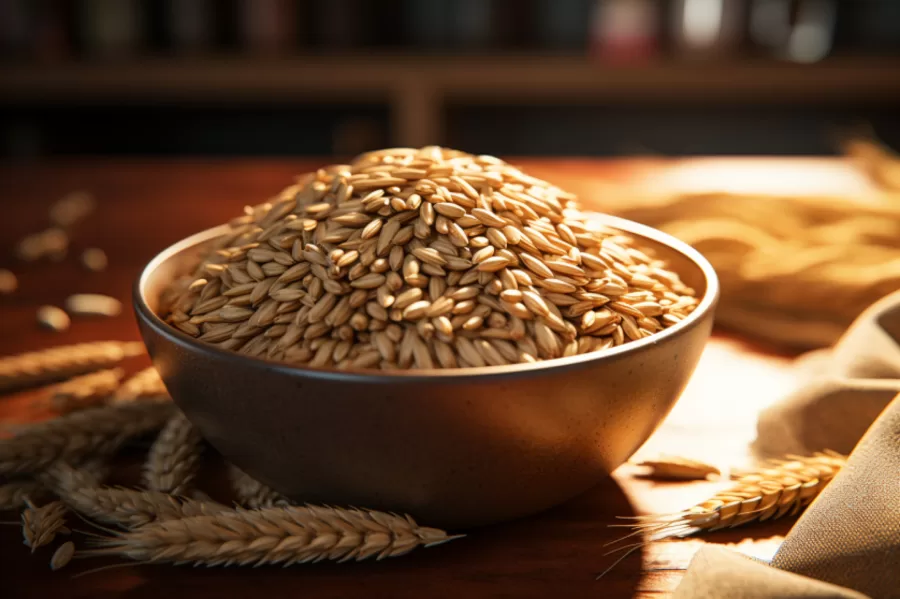Whole grains—unassuming and humble, yet, they hold the power to significantly impact your health, particularly in maintaining a healthy weight. In this article, we will explore the value of whole grains and their role in helping us achieve and sustain a healthy weight.
What are Whole Grains?
Whole grains still include the bran, germ, and endosperm, the three fundamental components of a grain. They include foods like wheat, oats, oats, brown rice, a grain called and others. In contrast to their refined cousins, whole grains include a range of nutrients and protein.
Understanding Healthy Weight
Before we delve deeper into whole grains, let’s understand what ‘healthy weight’ means.It is the weight at which your body functions at its best, lowering your risk of developing chronic illnesses like diabetes and heart disease. And it’s true that achieving this balance depends heavily on whole grains.
Whole Grains’ Function in Weight Management
There are many ways that complete grains help with weight management. They include a lot of fiber, which keeps you fuller for longer and reduces the likelihood that you will overeat. Furthermore, the slow-release carbohydrates found in whole grains contribute to the maintenance of steady blood sugar levels and the prevention of hunger.
Nutritional Composition of Whole Grains
Whole grains are nutrition powerhouses. They are high in fiber and contain a range of important vitamins and minerals.
Fiber: The Weight Loss Champion
The high fiber content in whole grains slows digestion, giving a feeling of fullness for longer. This naturally suppresses appetite, reducing overall calorie intake.
Vitamins and Minerals: The Unsung Heroes
B vitamins, iron, folate, selenium, and magnesium are abundant in whole grain products. These nutrients play a crucial role in energy production, blood formation, and enhancing the body’s immune and nervous systems.
Health Benefits of Whole Grains
Whole grains go beyond just maintaining a healthy weight. They play an integral part in overall health as well.
Heart Health and Whole Grains
Due to the dietary fiber in whole grains, which can assist to reduce levels of harmful cholesterol, regular consumption of whole grains is associated with lower risks of heart disease.
Controlling Blood Sugar with Whole Grains
Blood sugar levels may be controlled by eating whole grains. These grains’ slow-release carbs minimize sharp rises and falls in blood sugar, which lowers the risk of type 2 diabetes.
Whole Grains and Digestive Health
Thanks to their fiber content, whole grains promote healthy digestion by adding bulk to stools and reducing the risk of constipation.
How to Incorporate Whole Grains into Your Diet
Switch out refined grains with their whole counterparts. Opt for whole grain bread, pasta, and brown rice. Experiment with lesser-known grains like quinoa and bulgur.
Whole Grain Recipes for Weight Management
From overnight oats to quinoa salads, there are numerous tasty recipes to help you incorporate more whole grains into your meals.
Overcoming the Misconceptions about Whole Grains
Some people avoid whole grains due to misconceptions about their taste or effects on the body. However, whole grains are not only delicious but their health benefits are backed by extensive scientific research.
Conclusion
Whole grains offer an array of benefits for those looking to maintain a healthy weight. They are packed full of nutrients, are versatile in cooking, and make a significant contribution to overall health. Start incorporating them into your diet and experience the benefits firsthand.
FAQ
Can I lose weight by eating only whole grains?
Whole grains can aid in weight loss, but they should be part of a balanced diet and active lifestyle.
Are all whole grain foods healthy?
While whole grains are healthy, some foods labeled as “whole grain” may contain added sugars and fats. Always read the label.
Do whole grains cause bloating?
For some people, sudden increases in dietary fiber may cause bloating. Gradually increase your fiber intake to give your body time to adjust.







